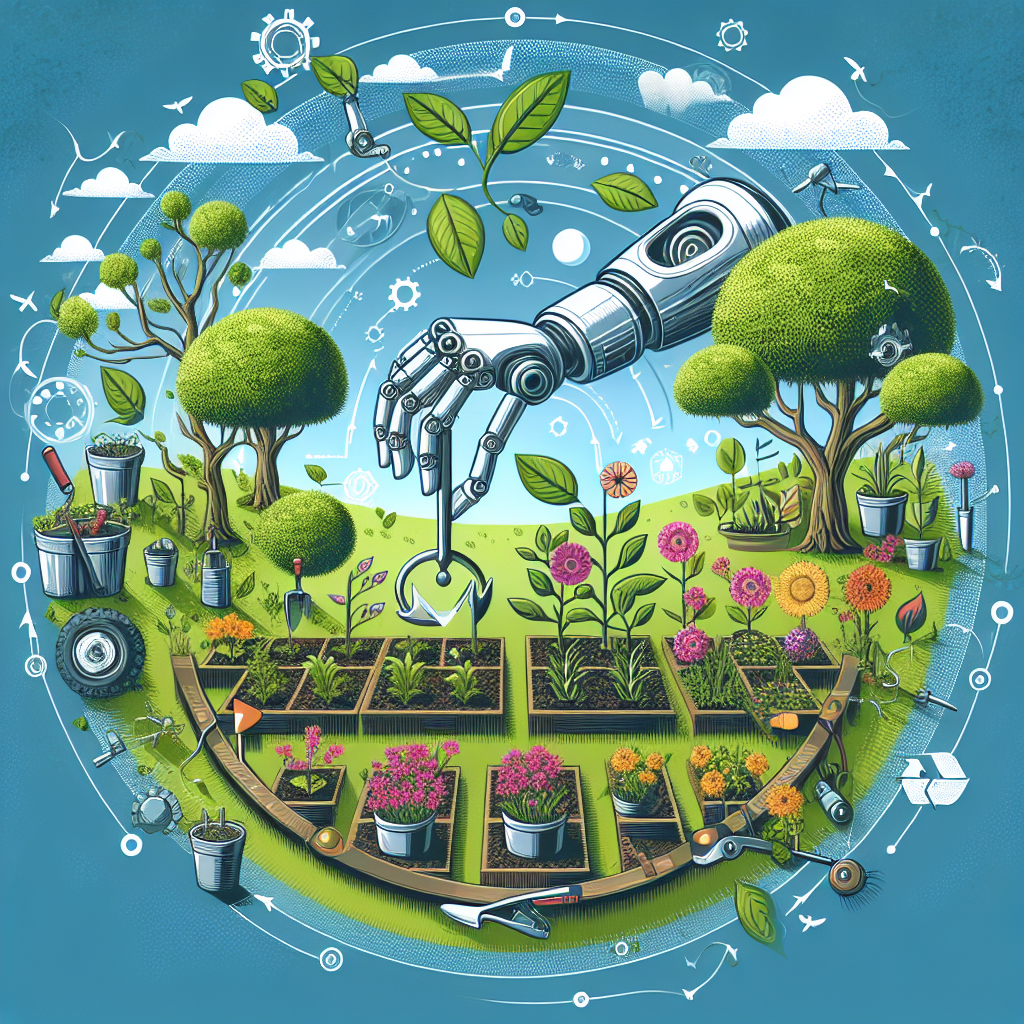Overview of the Importance of Gardening for the Environment
Gardening is not just a leisure activity but a powerful tool for environmental conservation. The act of growing plants, whether in a backyard garden or a community plot, has far-reaching benefits for the environment. From improving air quality to enhancing biodiversity and mitigating climate change, gardening plays a crucial role in sustainability efforts.
Benefits of Gardening for the Environment
Improving Air Quality
Gardening, especially planting trees and shrubs, helps improve air quality by capturing pollutants and releasing oxygen. According to the Environmental Protection Agency, 'Trees help improve air quality by removing dust and absorbing pollutants such as carbon monoxide, sulfur dioxide, and nitrogen dioxide.' The presence of green spaces in urban areas can significantly reduce the impact of air pollution and improve public health.
Enhancing Biodiversity
Gardening provides habitats for various plant species, insects, birds, and other wildlife. By creating diverse and well-maintained gardens, individuals can support local ecosystems and contribute to the preservation of native species. The Royal Horticultural Society notes, 'Gardens can act as important refuges for wildlife, providing food and shelter in urban environments.'
Mitigating Climate Change
Plants play a vital role in sequestering carbon dioxide, a key greenhouse gas contributing to climate change. Through photosynthesis, plants absorb carbon dioxide from the atmosphere and store carbon in their biomass and the soil. The Union of Concerned Scientists states, 'Gardening, especially when done with sustainable practices, can help reduce greenhouse gas emissions and combat climate change.' By planting trees and perennial crops, individuals can actively participate in climate mitigation efforts.
Reducing Waste
Gardening encourages composting of organic waste, reducing the amount of waste sent to landfills. By recycling kitchen scraps and garden trimmings into nutrient-rich compost, gardeners can enrich the soil, improve plant health, and divert waste from municipal disposal sites. The Environmental Protection Agency highlights, 'Composting is a natural way to recycle organic materials, benefiting soil health and reducing greenhouse gas emissions.'
Industry Insights
Quotes from Experts on the Environmental Benefits of Gardening:
Dr. Jane Goodall, Primatologist and Environmental Activist: 'Gardening connects us to the natural world and reminds us of our responsibility to protect and conserve the environment.'
Mike McGrath, Host of 'You Bet Your Garden' Radio Show: 'Gardening is not just a hobby; it's a way to positively impact the planet by creating sustainable green spaces.'
Dr. Rickey Yada, Professor of Food Science, University of British Columbia: 'Community gardens play a vital role in promoting sustainable food systems and fostering social connections while benefiting the environment.'
Case Studies
Urban Gardening Initiatives
In cities around the world, urban gardening initiatives have transformed unused spaces into vibrant gardens that contribute to environmental sustainability. The High Line in New York City, a former elevated railway turned into a greenway with gardens, exemplifies how urban gardening can enhance biodiversity and urban aesthetics while reducing the urban heat island effect.
Community Gardens and Their Environmental Impact
Community gardens empower local residents to grow their own food, promote food security, and cultivate a sense of community. Studies have shown that community gardens not only increase access to fresh produce but also provide environmental benefits such as soil remediation, stormwater management, and wildlife habitat creation.
Sustainable Farming Practices
The adoption of sustainable farming practices, including crop rotation, cover cropping, and integrated pest management, exemplifies the environmental benefits of gardening on a larger scale. Organic farms prioritize soil health, biodiversity conservation, and reduced chemical inputs, showcasing how environmentally friendly agriculture can protect ecosystems and mitigate climate change.
Implications and Conclusion
Gardening is a multifaceted activity that positively impacts the environment in various ways, from fostering biodiversity to combating climate change and reducing waste. As individuals, communities, and organizations increasingly recognize the importance of gardening for environmental conservation, it is essential to advocate for policies and initiatives that support sustainable gardening practices.
Call to Action
To further promote the environmental benefits of gardening, we encourage researchers, policymakers, and gardening enthusiasts to collaborate on research projects, educational campaigns, and community gardening initiatives. By working together to advance gardening as a tool for environmental conservation, we can create a greener and more sustainable future for generations to come.
Topics




